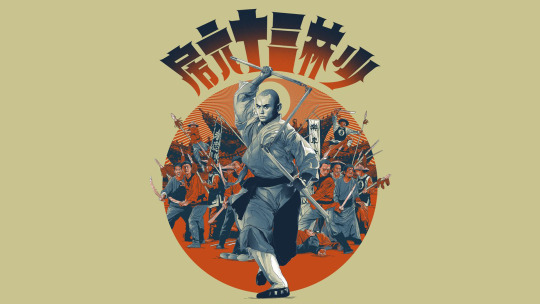#36th chamber of shaolin
Text
help me decide which ones to prioritise before my mubi membership runs out! and please feel free to tell me why or recommend multiple films (or one i haven't mentioned)!
#shaw brothers#wuxia#36th chamber of shaolin#the 8 diagram pole fighter#dirty ho#five element ninjas#the one armed swordsman#intimate confessions of a chinese courtesan#my polls#the shaw brothers back catalogue is sooooo long and i'm so00 indecisive#these are just ones that caught my eye but i'm happy to add others to my watchlist as well#chang cheh#lau kar leung
7 notes
·
View notes
Text

119 notes
·
View notes
Text
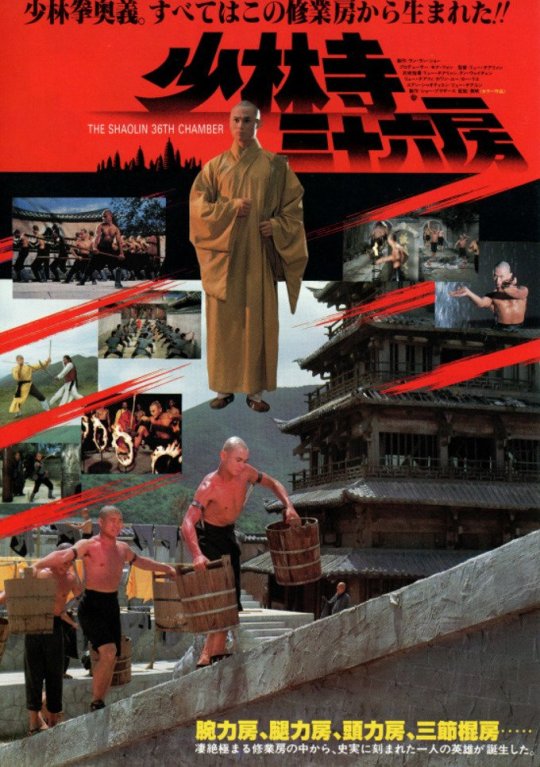
The 36th Chamber of Shaolin (1978)
#movies#posters#shaw bros.#gordon liu#lau kar leung#the 36th chamber of shaolin#kung fu movies#favorites
12 notes
·
View notes
Text
462 to go
Louisiana Story (1948, dir. Robert Flaherty): The setting is lovely and beautifully shot but man did this one bore me.
The Man Who Had His Hair Cut Short (1966, dir. André Delvaux): The protagonist is such a wet tissue of a human being but that just makes this story of devastating, all-encompassing obsession work all the better.
Pierrot le Fou (1965, dir. Jean-Luc Godard): This project has fully Stockholm Syndromed me into enjoying Godard.
The 36th Chamber of Shaolin (1978, dir. Lau Kar-leung): Not really my cup of tea but it's very well made and surprisingly funny.
Shoot the Piano Player (1960, dir. François Truffaut): Truffaut has always been a bit too esoteric for me but that wasn't the case here - I actually loved this movie! What can I say, I can't resist a pathetic male lead or witty, foul-mouthed waitresses, not to mention how beautiful the film looks - Paris in the 1960s is ever charming.
Bigger Than Life (1956, dir. Nicholas Ray): A beautifully crafted, nightmarish melodrama. Obviously the science is 100% bullshit but the anxiety and fear are very real. It also kind of shocked me how openly critical it is of at those at the time sacred concepts of the American Dream, the noble patriarch and the nuclear family.
Body Heat (1981, dir. Lawrence Kasdan): A very fun little piece of 80s sleaze. Kathleen Turner is mesmerizing, a modern day (at the time) Lauren Bacall. And people really aren't sweaty enough in modern day cinema.
The Five Venoms (1978, dir. Chang Cheh): Actually, I think I'm starting to get this genre. The structure felt strange to me but the plot was gripping and the characters fun, if not particularly complex (Toad was my favorite). The amount of awful wigs - and fake beards! - delighted me to no end.
#1001 movies#louisiana story#the man who had his hair cut short#pierrot le fou#the 36th chamber of shaolin#shoot the piano player#bigger than life#body heat#the five venoms
2 notes
·
View notes
Text
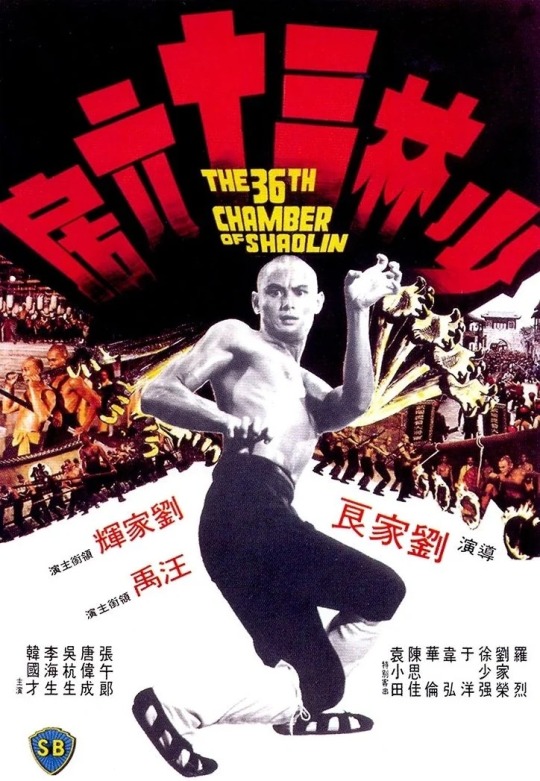
1978: the 36th chamber of Shaolin. IMDb 7.6
2 notes
·
View notes
Text
The happiest of birthdays to supremely awesome Gordon Liu!!
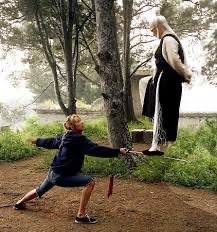
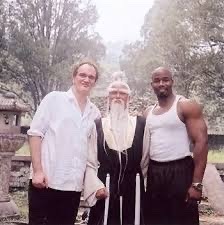
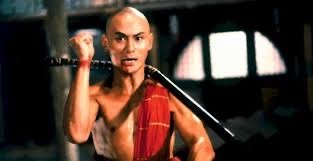
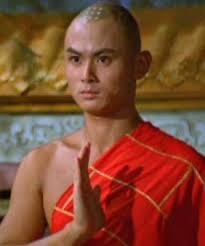
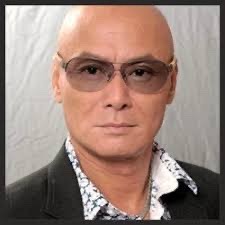
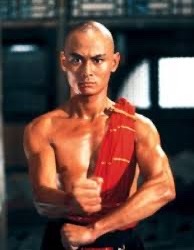
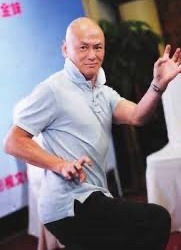
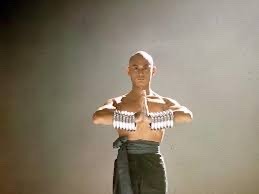
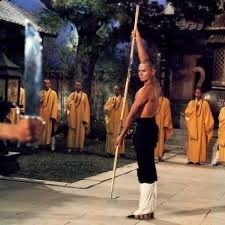
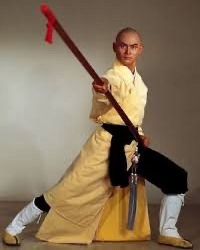
#gordon liu#kill bill volume 2#the 36th chamber of shaolin#clan of the white lotus#return to the 36th chamber#martial arts#martial arts movies#shaolin Prince#heroes of the East#executioners from shaolin#legenadary weapons of China#legend#icon
12 notes
·
View notes
Text
Film #903: 'The 36th Chamber of Shaolin'/'Shaolin Master Killer', dir. Lau Kar-leung, 1978.
A bit of a shorter write-up this time, because there's not too much to dig into here - it's just a really fun film. If you are expecting something emotive and meaningful from this write-up, you're in the wrong cinema. There's nothing particularly deep about the plot of The 36th Chamber of Shaolin (included in the book as Shaolin Master Killer). This film is certainly a crowd-pleaser rather than a philosophical treatise. What its inclusion here indicates is how a particularly devoted director can forward the narrative structures of a genre single-handedly.
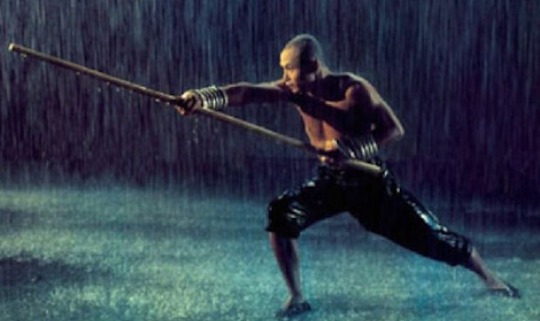
Lau Kar-leung started his career as a fight choreographer for the Shaw Brothers studio, working closely with the director Chang Cheh (who later directed Five Deadly Venoms, also 1978) before taking the directorial role once the genre exploded in the early 1970s. Most of the martial arts films a Western audience would encounter during this boom would have had Lau's involvement in some form. His adeptness with fight choreography makes his films singularly identifiable - each fight scene in a Lau film moves the narrative forward, rather than merely being a spectacular set-piece. In particular, his films codified the 'training montage' trope, and The 36th Chamber has some of the most streamlined training montages of any classic martial arts film.
Let's start with the actual plot of the film, though, because it acts as a framework (even though it's quite a rudimentary one) for the martial arts action. China is ruled over by the oppressive Manchurian government, and several students are embroiled in a local uprising. This cabal is quickly squashed, but a survivor, Liu Yude (Gordon Liu), swears revenge on the local Manchurian general for the deaths of his friends and family. Liu sees learning kung fu at the famed Shaolin temple as his only course of action, even though the temple famously refuses to teach the art to laypeople.
The second section of the film, and its largest, follows Liu's training as the monk San Te. The temple is divided into 35 'chambers' where students perfect specific techniques. One chamber requires the acolytes to carry water uphill with knives strapped to their upper arms - weakness in the arms is rewarded with a sharp jab in the ribs. Another has dozens of heavy bags strung at head height, where Liu must repeatedly headbutt the bags on his way to burn incense at an altar (the teacher in this chamber has thick calluses on his head from his decades of experience). Having mastered the skills without losing his desire for revenge, Liu asks the masters if he might institute a 36th chamber, where the teaching of kung fu can be made available to anyone. The masters refuse, instead sending him out to collect donations in the city.
This refusal is a calculated ploy by the temple to allow Liu to achieve his aims to aid the populace. He gathers his first students and succeeds in both defeating the local Manchurian regime and bringing the first secular students to the temple.
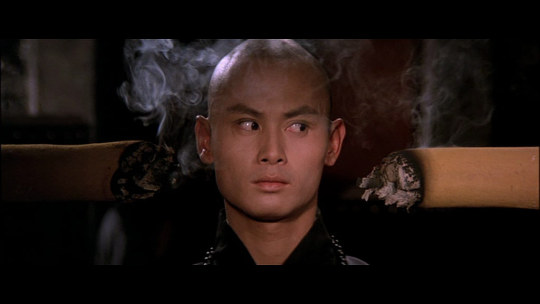
It should be noted that The 36th Chamber is not particularly concerned with exploring the ethical or philosophical implications of its plot. The film could find itself having to tread a fine line between Buddhism's famous non-violence and advocacy of violence as a tool to fight oppressive regimes. Instead, Lau completely ignores this question. The temple accepts that its martial arts might be a useful weapon for the greater good, and no time at all is given to discussion of this. And why should it be? This is a martial arts film, and it would be a foolish decision to make the film fret over the ethics.
Lau is far more interested in encouraging the viewer to build a vocabulary of martial arts techniques that can then be recognised later on. The fact that only monks can learn kung fu has an interesting implication: right from the beginning we see martial arts combat, but because these characters can't have learned martial arts they must be doing the graceful equivalent of messy brawling. And yes, when we see the later fight sequences the other characters seem distracted and sloppy in comparison to San Te's techniques. More interesting, though, is how we make sense of the fights in the third act.
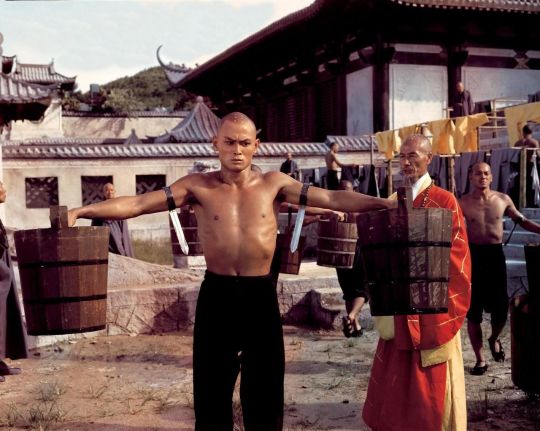
The third act has two types of fight: broader fights against groups of opponents, and the climactic battle against General Tien Ta (Lo Lieh). In the earlier combats, we're assisted in identifying how each of the chambers of the temple has provided parts of San Te's style. Here he is encouraging someone to use a hammer in a fight, just like in the gong chamber! Here he is balancing on reeds, like in his first lesson! When we see him fight, there are headbutts and sword techniques that are drawn directly from his earlier training with no amendments or ornamentation. In his individual fights, though, a progression occurs: a synthesis of these techniques where we might recognise, just vaguely, the same type of leg-crossing jump he uses in a particular lesson.
In other words, Liu's character development is mostly charted through the smoothness of his fighting style. Like the viewer, Liu faces each chamber with initial confusion: how can this task possibly assist in developing martial arts? As he absorbs each new technique into his repertoire, though, his outlook changes as well. His indignant impatience with the Manchurian rulers is tempered by the time he spends training, and his anger turns into tactical planning. Only by mastering all the chambers of the Shaolin temple could he become adept enough to succeed in his quest, and by doing so, he also becomes the kind of person who deserves to succeed.
The 36th Chamber of Shaolin becomes a much more fitting title for the film, then, than Shaolin Master Killer. Under the latter title, the audience is primed to watch this film looking for the action and violence. By referring to the 36th chamber, which we are told early in San Te's training doesn't yet exist, we're encouraged to look ahead to his eventual accomplishment, and the things he has to learn in order for that ambition to become a reality.
#1001 movies#the 36th chamber of shaolin#shaolin master killer#lau kar-leung#lau kar leung#martial arts
5 notes
·
View notes
Text
Preview- Shawscope Volume Two (Limited Edition Bluray)
Preview- Shawscope Volume Two (Limited Edition Bluray)
Picking up where Volume One left off, this sophomore collection of Hong Kong cinema classics draws together many of the best films from the final years of the Shaw Brothers studio, proving that while the end was nigh, these merchants of martial arts mayhem weren’t going to go out without a fight! Armed with stunning special features and ravishing new restorations, this boxset is even bigger and…

View On WordPress
#Disciples of the 36th Chamber#Five Superfighters#Gordon Liu#Invincible Shaolin#Magnificent Ruffians#Martial Arts of Shaolin#Mercenaries from Hong Kong#My Young Auntie#Return to the 36th Chamber#Shaw Brothers#Shawscope#Ten Tigers of Kwangtung#The 36th Chamber of Shaolin#The Bare-Footed Kid#The Boxer’s Omen#The Kid with the Golden Arm#The Shaw Brothers
3 notes
·
View notes
Photo
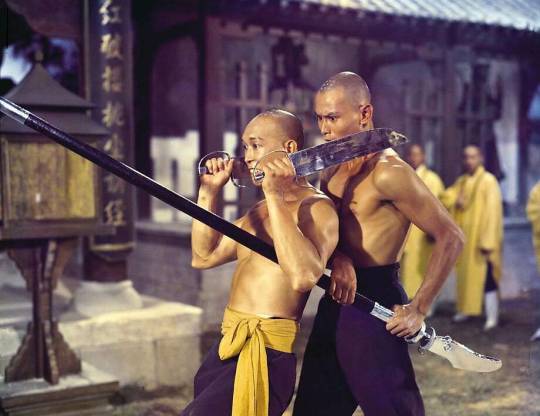
The 36th Chamber of Shaolin
#gordon liu#hoi sang lee#1970s#shaw brothers#the 36th chamber of shaolin#kung fu movies#hong kong#1978
4 notes
·
View notes
Text
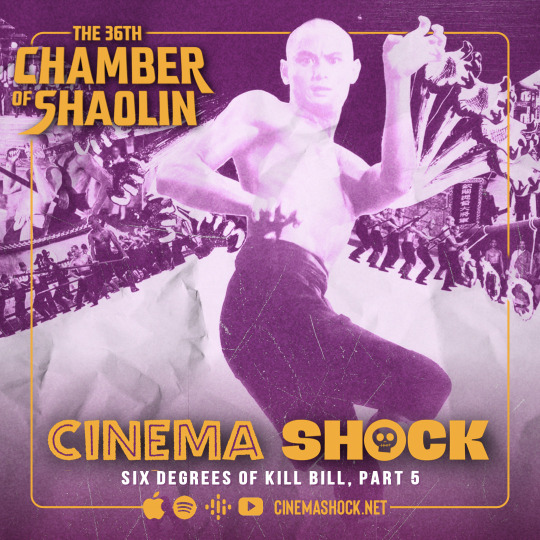
#the 36th chamber of shaolin#Chia-Liang Liu#gordon liu#shaw brothers#quentin tarantino#cinema shock#podcast
1 note
·
View note
Text
Shaw Brothers Shawscope Volume 2 Offering Another Christmas Treat
Shaw Brothers Shawscope Volume 2 Offering Another Christmas Treat
#TheShawBrothers #MartialArts #hongkong @ArrowFilmsVideo
This was a great Christmas present for Shaw Brothers fans las year, it’s now surprise Shawscope Volume 2 is coming this Christmas. Arrow Video announce a November release of a Limited Edition Blu-ray box set of films by the legendary Shaw brothers, Run Run and Runme, pioneers of revolutionary Hong Kong action films of the 1970s.
This sophomore collection – Shawscope Volume Two – by Arrow Video,…
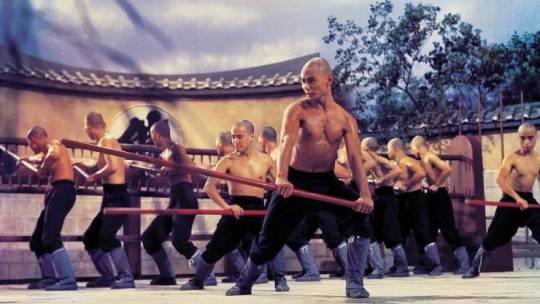
View On WordPress
0 notes
Photo
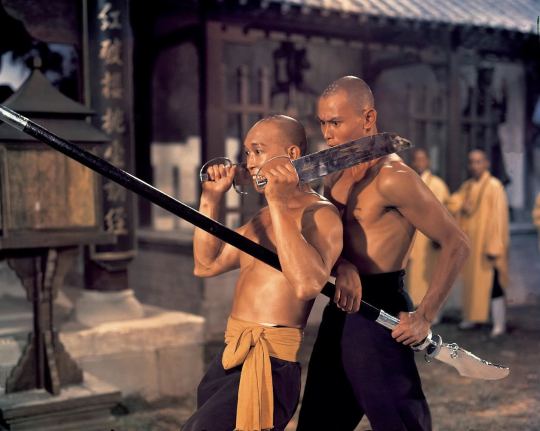
Lee Hoi-Sang and Gordon Liu in Lau Kar-leung movie The 36th Chamber of Shaolin
52 notes
·
View notes
Text
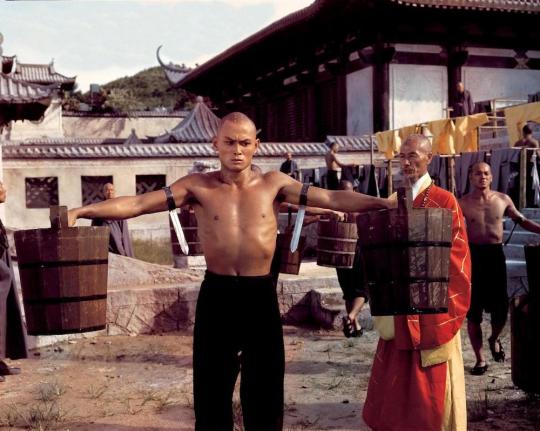
The 36th Chamber of Shaolin (Chia-Liang Liu, 1978)
98 notes
·
View notes
Note
you have some knowledge of classic hong kong kung fu movies, right? like bruce lee, maybe john woo and jackie chan, I'm not really sure who the big stars are. do you have any you particularly recommend? I'd like to watch a few
I'm not actually an expert on this (or anything) and my experience is somewhat scattershot, which makes me wonder what I've even watched, hmm.
Bruce Lee, I've only actually watched The Big Boss in full as a movie, but seen enough clips of the others that they feel familiar; honestly despite the way he towers over the field I think he's more valuable as a conceptual inspiration than a maker of actual movies.
Jackie Chan is obviously incredible; his early movies might be a little cheap and silly but they're far more advanced than anything Bruce Lee had the chance to do and he made so damn many of them! he's not just a kung fu guy but a master of physical comedy, a modern Buster Keaton, and yes obviously the stunts wow.
John Woo fills in the "charismatic gun-fu" and "fluttering doves" side of Hong Kong movies and those are surely worth dipping into at least a little, especially if you appreciate Chow Yun-fat.
Stephen Chow is a personal favourite; a very funny comedian but his comedies include Shaolin Soccer and Kung Fu, as well as the two part Journey to the West parody (Chinese Odyssey) which is fantastic.
Leslie Cheung wasn't a kung fu star but A Chinese Ghost Story by Tsui Hark is still the best version of that movie ever made.
oh and while we're on kung fu comedy, Eagle Shooting Heroes from 1993 is the funniest damn thing and has the best scene of toad-style kung fu put to film; allegedly made in a rush while Ashes of Time ran over budget, it borrows most of the cast and has both Tony's Leung and Jackie Cheung as well Brigitte Lin and Joey Wong and Maggie Cheung.
hmm actually these are all kung fu comedy recs but kung fu lends itself naturally to comedy (and the best comedies have a solid emotional core); Tin Ha Mou Seung (Chinese Odyssey 2002, no relation to the other film with a similar name) is a hilarious spoof of Wong Kar-wai films and classic Shaw Brothers movies like The Kingdom and the Beauty and The Butterfly Lovers, it's great!
oh turns out there is another film titled Chinese Odyssey from 2022, which was Ng Man-tat's last movie before he died of liver cancer; what a pity, that guy was great with Stephen Chow and made more than fifty movies in his career.
okay I'm rambling here and there's tons of other kung fu movie possibilities I haven't covered, like 36th Chamber of Shaolin or the first Ip Man movie, Donnie Yen movies in general, oh and anything with Sammo Hung in it, just go watch some movies already!
15 notes
·
View notes
Text
Today (August 22nd) is Gordon Liu’s Birthday. Recognized mostly for his roles in The 36th Chamber of Shaolin and Kill Bill, he’s done so much more than that. He’s easily one of Shaw Brother’s most memorable leading men and even directed one of the greatest martial arts films of all time, Shaolin and Wu Tang.
Here he is going up against Phillip Kwok (of the Venom Mob) in Treasure Hunt (1994)
#Gordon Liu#Shaw Brothers#Phillip Kwok#Kung fu#Kung fu cinema#Kung fu movies#Martial arts#Martial arts cinema#Martial arts movies
185 notes
·
View notes
